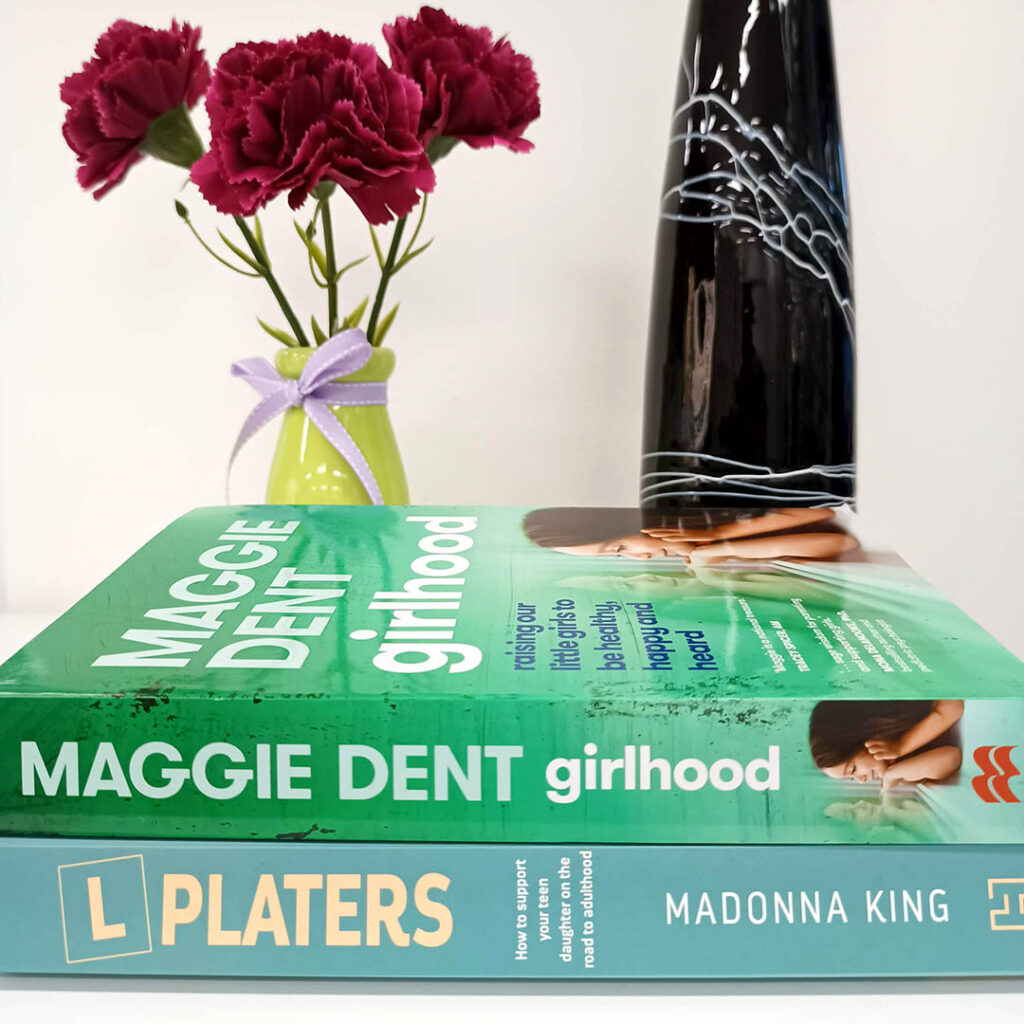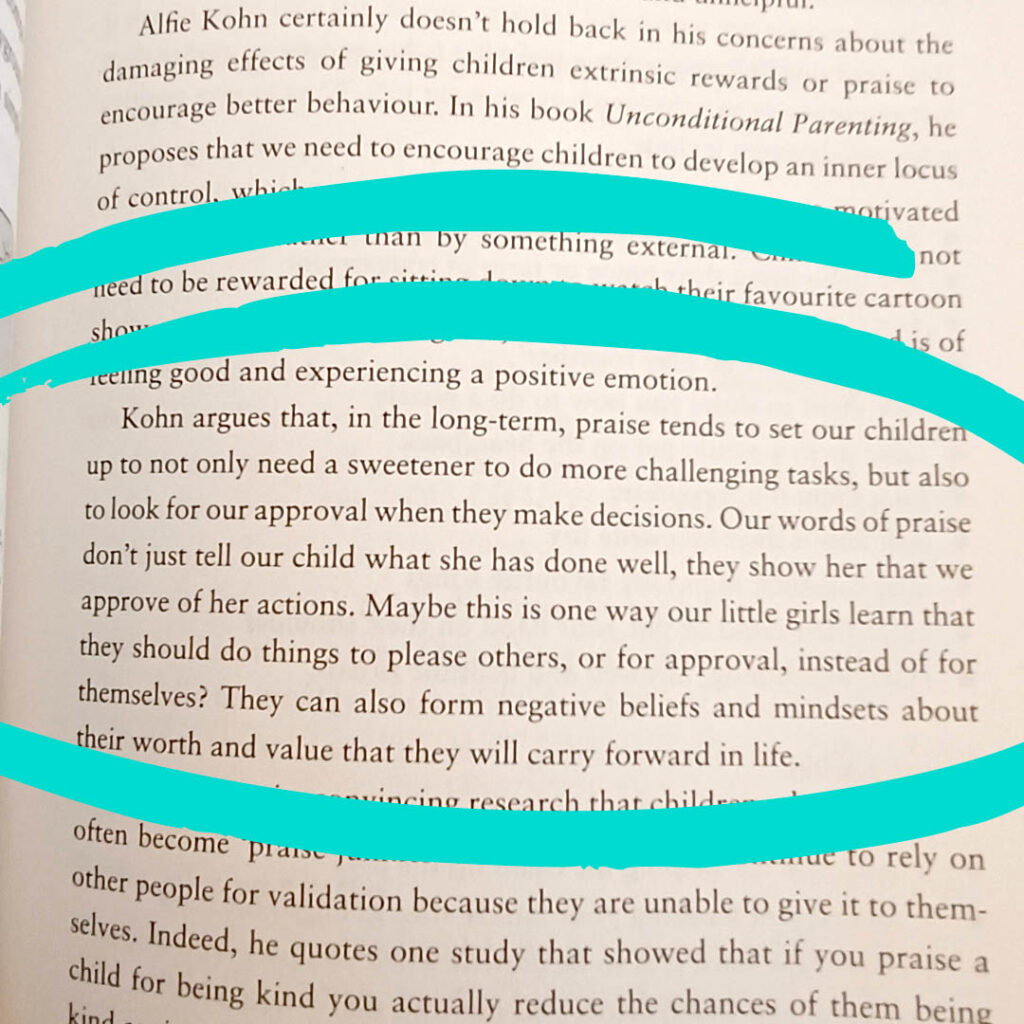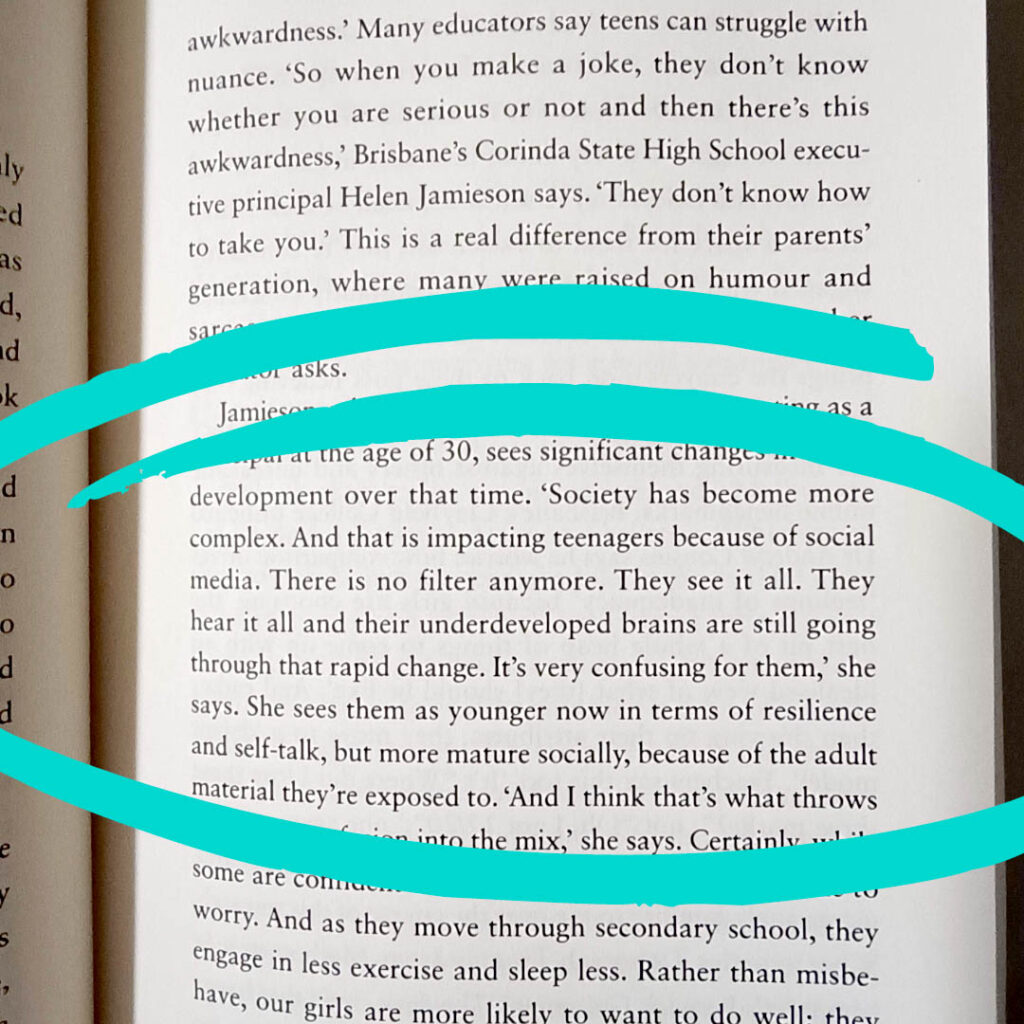Two leading parenting writers—Maggie Dent and Madonna King—share the problems our girls face today, and the secret to raising strong daughters.
This month, girls are in the focus as two leading parenting writers release books about raising daughters.
“Australia’s queen of common-sense parenting” Maggie Dent’s latest book, Girlhood, is all about how girls develop emotionally and mentally from birth to age eight. L Platers by Madonna King, on the other hand, concentrates on how to help teen girls on the road to adulthood.

Raising strong daughters: Start from the beginning
The practical side of parenting is likely to be more obvious than the emotional one. Changing nappies, settling them and even starting solids can seem pretty straightforward when compared to figuring out how babies develop neurologically.
Enter Girlhood. If you’ve ever wondered what goes on in your baby girl’s brain, how it develops and how you can nurture it so it enables them to grow up to be emotionally strong women, this is a good book to start with.
If you’ve ever struggled with the right words to say, the right way to react and the right things to do in response to your child’s behaviour, take a look at Girlhood.

What parents need to focus on
A mother of four boys, Maggie Dent may have no personal experience to speak of, but there’s a reason why she’s the beloved parenting expert that she is. As a teacher, counsellor and parenting expert, Maggie has a wealth of interactions with other people’s daughters and her own granddaughters.
Her research and interviews with experts are substantial as she delves into topics that focus on the best way parents can support our girls right from birth. These include:
- Building a strong emotional bond
- Introversion versus extroversion
- Developing resilience
- Play (both physical and imaginative) and its benefits
- Juggling screen time
- Navigating friendships
However, while Girlhood may be targeted at parents with daughters, as a mum of an only boy, I feel the wisdom and insight it holds applies more generally to children of any gender. These include tips such as:
- The importance of little family rituals to form a firm emotional foundation
- Understanding a child’s love language and how to make them feel loved
- How to deal with emotions and big feelings
- Playing to the strengths of our child’s unique personalities
- Identifying their special type of intelligence
There are however, two main topics parents of daughters will need to grapple with more than those with sons, and Maggie tackles them head on.
The sexualisation and empowerment of our girls
While boys do suffer from body image issues as well, statistics have shown it’s more commonly felt by girls. Maggie dedicates a full chapter to the problem of sexualisation, body image and self-esteem problems our girls face. She includes practical tips on how to raise strong daughters who will hopefully be less susceptible to the pressures our teen girls face today (see the review of L Platers below).
The other hot topic involves identifying gender inequality, developing assertive confidence, and finding a voice to advocate for others and themselves—the trifecta qualities of every strong woman.
While not a unique topic to daughters—we can raise our sons to be feminists too—Maggie addresses the topic from a girl’s point of view. Maggie shares ideas on how parents can help girls build the confidence to stand up for themselves in a patriarchal society, avoid the tendency to overapologise and “hedge”, and most important, to understand consent.
Guiding your daughter to strong womanhood
Girlhood finishes with preparing our girls to successfully navigate entering big school and like a counterbalance, this month’s other new release, L Platers, turns to girls as they’re finishing up formal schooling.
Getting your 16-, 17- or 18-year-old daughter to open up can often be fraught with difficulties. You want to know what they’re thinking, but they simply won’t talk. To you, at least.
In L Platers, seasoned journalist Madonna King has done all the hard work—and then some. She interviews 1000 young women and shares their innermost thoughts (anonymously) in the book. And talk, they did. What Madonna finds is that their thoughts are filled with fear, worry, doubt, hope and aspirations.
And as it turns out, many of our teen girls today are confronted by very similar issues that we all probably faced growing up: Juggling academics with a social life. Wanting to right the wrongs in the world. Figuring out what the future looks like and what it takes to be an adult. Being comfortable in our own skin.
Madonna’s book highlights the fact teen girls today are full of contradictions. They’re accepting of others, but highly critical of themselves. They want independence, but are afraid of leaving the safety net of being in the family home.
The lost generation of social media
There is also another generational difference between us and our daughters. Back when we were teens, we may have the internet, but certainly not social media as we know it now. And it’s taking a toll on their mental health and sense of confidence.

“Overall, computer gaming and social media usage were identified as the greatest detractors from the development of self-confidence,” Dr Terry Fitzsimmons, managing director of the Australian Gender Equality Council, tells Madonna.
As earlier mentioned, theirs is an age of contradictions. They know social media is unhealthy for them, superficial and designed to portray a certain persona. And yet, they can’t help but feel like they don’t measure up.
Gender identity.
Alcohol.
Vaping.
Sex.
Body image.
Anxiety.
Teen girls are floundering.
How can parents raise strong daughters?
Interviewing just 1000 teen girls may seem like a small number to help gain an insight to an entire generation’s inner psyche. However, this isn’t the first time Madonna has done something similar. A few years ago, she interviewed 10-year-old girls, mothers and teachers for her book Ten-ager.
Her book then and her book now, although drawing from a small pool of young women, still holds credibility. Her books are dependable guides for parents struggling to raise strong daughters because of the experts she speaks to.
Madonna’s understanding of the issues young women face are corroborated by those in the trenches. Teachers, school principals, psychologists and multiple experts whose jobs it is to interact with large numbers of young women on a day-to-day basis.
She speaks to big names in the world of parenting. Dr Justin Coulson. Dr Jodi Richardson. Michelle Mitchell and more.
The beauty of L Platers isn’t because it simply gives us a peek into our teen girls’ heads. Madonna shares the strategies and actions parents can take to help our daughters through the various challenges they face. These are practical advice from professionals who have spent years helping many young women get back on track.
It is for this reason this book is an invaluable resource for any parent worried about their teen girl today. It’s timely, it’s relevant and most importantly, it equips.
Girlhood by Maggie Dent and L Platers by Madonna King are both available now.
This post includes affiliates and/or paid inclusions.
How helpful was this article?
Click on a star to rate it!
0 / 5. 0
Be the first to rate this post!
Melody Tan
Related posts
Subscribe
Receive personalised articles from experts and wellness inspiration weekly!

